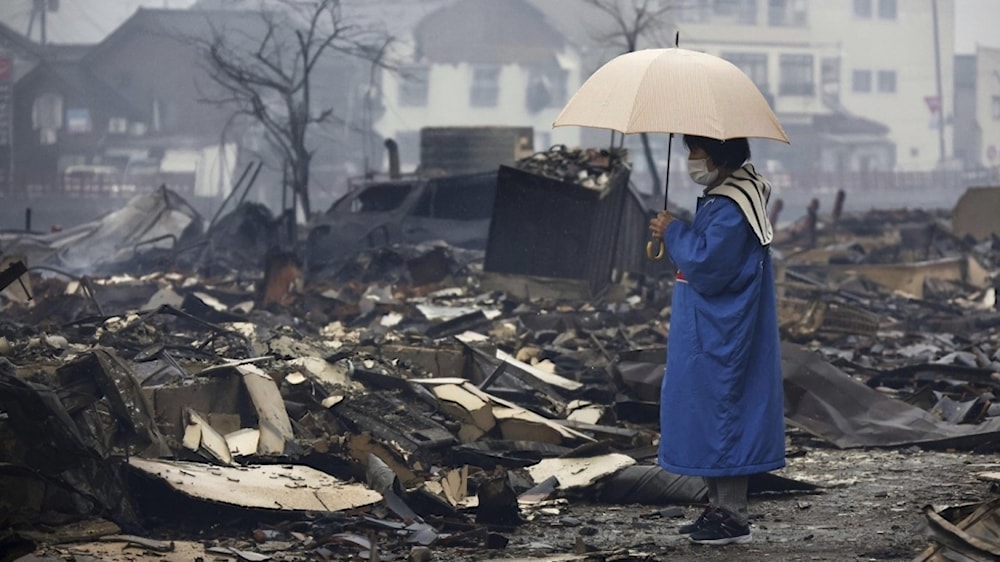Japan quake toll rises to 73 as weather hampers rescuers
The Noto Peninsula was hit the hardest, with coastal towns like Wajima and Suzu practically rubble, with destroyed buildings and sunken boats.
-

A woman looks at the burnt-out marketplace by a fire following earthquakes in Wajima, Ishikawa prefecture, Japan Wednesday, Jan. 3, 2024. (AP)
On Wednesday, Japanese rescuers battled torrential rain, clogged roads, and tremors in the aftermath of an earthquake that struck the country on New Year's Day and killed at least 73 people and left tens of thousands without electricity or running water.
The quake, with a magnitude of 7.5, struck Ishikawa prefecture on Honshu's main island. This powerful seismic event generated tsunami waves exceeding one meter, leading to the collapse of buildings, igniting a major fire, and causing severe damage to roads.
Sirens wailed throughout the Ishikawa prefecture on Honshu's main island as rescue vehicles attempted to traverse roads blocked by boulders and fallen trees.
The Noto Peninsula was hit the hardest, with coastal towns like Wajima and Suzu practically rubble, with destroyed buildings and sunken boats.
75-year-old Yoko Demura told AFP she was sad because she could "never go back" to her home which was now "unlivable."
Municipal mayor Masuhiro Izumiya was quoted by TBS broadcaster saying that nearly "90 % of the houses...are completely or almost completely destroyed... the situation is really catastrophic."
Over 200 buildings were reduced to rubble and over 33,400 people were in shelters.
According to the local utility, over 30,000 homes in Ishikawa prefecture were still without electricity, while over 110,000 households were left with no running water.
Following an emergency task force meeting, the Prime Minister Fumio Kishida expressed that "More than 40 hours have passed since the disaster. We have received a lot of information about people in need of rescue and there are people waiting for help."
He noted that the number of military soldiers sent to the region had been increased, and that extra rescue dogs had been deployed.
Food and humanitarian aid have arrived in the region, but distribution to towns has been impeded by poor road conditions, according to regional officials.

 2 Min Read
2 Min Read








